MIRIAM MAKEBA / “Miriam Makeba Mixtape”
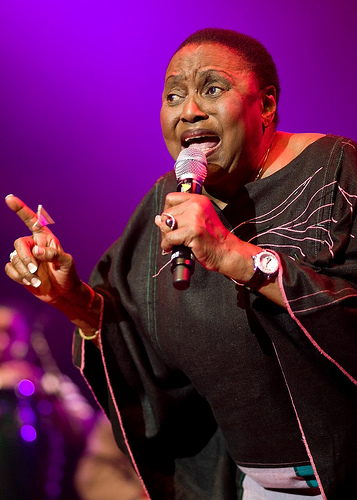
“I will sing till the day I die.” —Zenzile Miriam MakebaThe motherland knows her as Mama Africa. She is the embodiment of African womanhood—a fierce femininity of indescribable tenderness. She is both: a fighter and a lover. She was exiled from her native land for 31 years. While she was in exile she was a UN Ambassador for her host country of Guinea, in West Africa. She never quit the struggle. Some would say that after four marriages, her personal life was cursed. But she never gave up on love.
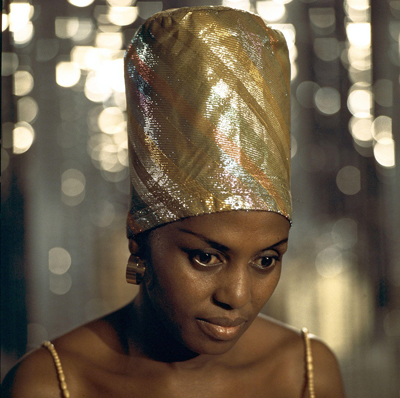 Many people can not imagine what “never give up” truly means.
Born on March 4, 1932 in Prospect Township, Johannesburg, South Africa. She spent over a year in prison as an infant when her mother was arrested. Her father died when she was six. Her mother was Swazi and a sangoma (traditional healer). Her father was Xhosa. She started her professional career in the early fifties, singing with The Manhattan Brothers. Within a few years she had established her own singing group, The Skylarks, which sang township jazz, traditional South African songs, and some religious music.
Many people can not imagine what “never give up” truly means.
Born on March 4, 1932 in Prospect Township, Johannesburg, South Africa. She spent over a year in prison as an infant when her mother was arrested. Her father died when she was six. Her mother was Swazi and a sangoma (traditional healer). Her father was Xhosa. She started her professional career in the early fifties, singing with The Manhattan Brothers. Within a few years she had established her own singing group, The Skylarks, which sang township jazz, traditional South African songs, and some religious music.
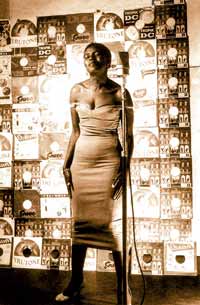 By 1959 she was starring in the South African musical King Kong, during which time she met and married Hugh Masekela who was also in the cast. She also was the featured lead in Come Back, Africa, an anti-apartheid documentary that she traveled to Europe to help promote. As a result her passport was lifted.
While in London she met Harry Belafonte who supported her personally and politically. He arranged for appearances in the United States including a spot on the Steve Allen television show.
By 1959 she was starring in the South African musical King Kong, during which time she met and married Hugh Masekela who was also in the cast. She also was the featured lead in Come Back, Africa, an anti-apartheid documentary that she traveled to Europe to help promote. As a result her passport was lifted.
While in London she met Harry Belafonte who supported her personally and politically. He arranged for appearances in the United States including a spot on the Steve Allen television show.
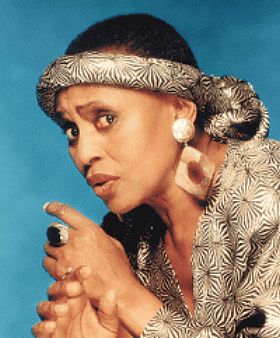 In 1960 when her mother died, the improper authorities would not allow her to return, not even for the funeral. But she did not break, did not surrender to despair.
In 1960 when her mother died, the improper authorities would not allow her to return, not even for the funeral. But she did not break, did not surrender to despair.
"The man at the desk took my passport. He did not speak to me. He took a rubber stamp and slammed it down. Then he walked away. I picked up my passport. It was stamped 'Invalid'. 'They have done it,' I told myself. 'They have exiled me. I am not permitted to go home -- not now, maybe not ever. My family, my home. Everything that has gone into the making of myself, gone'." —Miriam Makeba
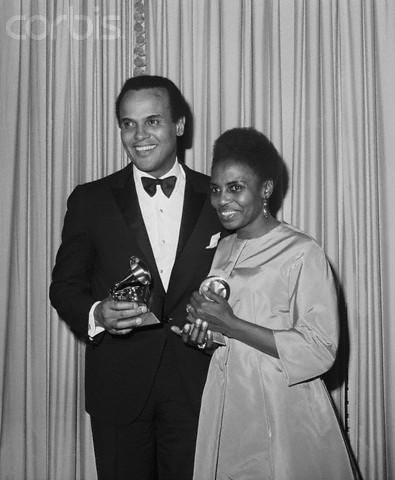 In 1966 the recording An Evening With Belafonte/Makeba won a Grammy and she became an international star. Her well quickly ran dry, however, when she married Stokley Carmichael in 1968 and incurred the wrath of the Western powers. Most of her bookings dried up and the RCA record company released her. She moved to Guinea with her husband. Makeba continued to live in Guinea even after her marriage to Carmichael dissolved. Undaunted she sang “a luta continua”—the struggle continues.
She left Guinea after her daughter, Sibongile, who was her only child, died while giving birth in 1985. How much hurt can one heart hold before exhaustion, before total failure? Although hardships never stopped, her heart kept going.
In 1966 the recording An Evening With Belafonte/Makeba won a Grammy and she became an international star. Her well quickly ran dry, however, when she married Stokley Carmichael in 1968 and incurred the wrath of the Western powers. Most of her bookings dried up and the RCA record company released her. She moved to Guinea with her husband. Makeba continued to live in Guinea even after her marriage to Carmichael dissolved. Undaunted she sang “a luta continua”—the struggle continues.
She left Guinea after her daughter, Sibongile, who was her only child, died while giving birth in 1985. How much hurt can one heart hold before exhaustion, before total failure? Although hardships never stopped, her heart kept going.
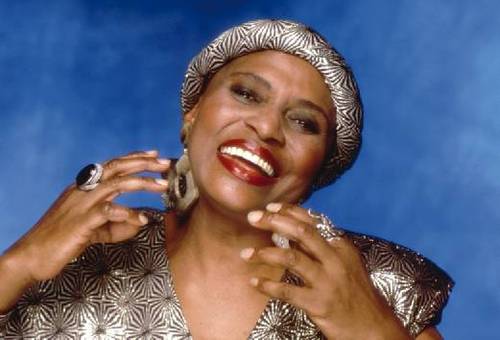 Finally, Mandela was released and, once elected President, Mandela called to Brussels where she was living and requested that she come home. She returned to a tumultuous welcome but instead of retiring she spearheaded relief work because as she noted, relief work and the struggle against poverty was now the frontline of struggle.
Finally, Mandela was released and, once elected President, Mandela called to Brussels where she was living and requested that she come home. She returned to a tumultuous welcome but instead of retiring she spearheaded relief work because as she noted, relief work and the struggle against poverty was now the frontline of struggle.
She works closely with Graça Machel-Mandela for children suffering from HIV/AIDS, child soldiers, and the physically handicapped. "The tragedy of civil wars in countries like Angola and Mozambique is that they left many civilians maimed," Makeba explains. Yesterday she was fighting apartheid, today she is enlisting the young in the battle against HIV/AIDS. "Poverty is the reason HIV/ AIDS spread so rapidly in the African townships and slums," Makeba says. "Poverty is the real killer," she says emphatically. —Gamal Nkrumah profile of Mama AfricaGo here to read a biography of this great woman.
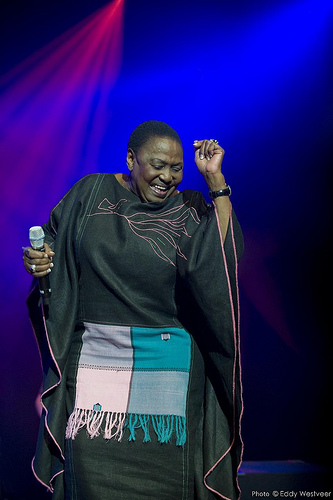 True to her word, Mama Africa sang until the day she died on November 10, 2008 when she suffered a heart attack while performing at a benefit concert in Italy supporting a writer who was speaking out against organized crime. Only death could stop Miriam Makeba and it took death a long time—seventy-six years—to still her voice.
True to her word, Mama Africa sang until the day she died on November 10, 2008 when she suffered a heart attack while performing at a benefit concert in Italy supporting a writer who was speaking out against organized crime. Only death could stop Miriam Makeba and it took death a long time—seventy-six years—to still her voice.
The sudden passing of our beloved Miriam has saddened us and our nation. For many decades, starting in the years before we went to prison, MaMiriam featured prominently in our lives and we enjoyed her moving performances at home. Despite her tremendous sacrifice and the pain she felt to leave behind her beloved family and her country when she went into exile, she continued to make us proud as she used her worldwide fame to focus attention on the abomination of apartheid. Her haunting melodies gave voice to the pain of exile and dislocation which she felt for 31 long years. At the same time, her music inspired a powerful sense of hope in all of us. Even after she returned home she continued to use her name to make a difference by mentoring musicians and supporting struggling young women. One of her more recent projects was to highlight the plight of victims of land mines. She was South Africa's first lady of song and so richly deserved the title of Mama Africa. She was a mother to our struggle and to the young nation of ours. It was fitting that her last moments were spent on a stage, enriching the hearts and lives of others - and again in support of a good cause. —Nelson Mandela
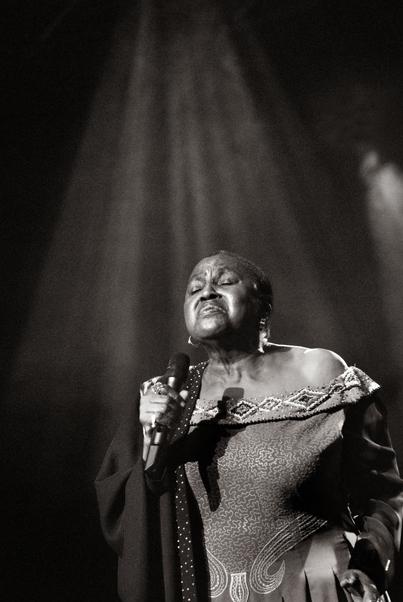 Mayibuye, Miriam Makeba—your voice will live in the voices of all the great South Africa singers coming strong behind you; in the voice of Thandiswa, Simphiwe, Earnestine and countless more. Mayibuye, Miriam, Mama Africa we love you.
—Kalamu ya Salaam
Miriam Makeba Mixtape Playlist
Mayibuye, Miriam Makeba—your voice will live in the voices of all the great South Africa singers coming strong behind you; in the voice of Thandiswa, Simphiwe, Earnestine and countless more. Mayibuye, Miriam, Mama Africa we love you.
—Kalamu ya Salaam
Miriam Makeba Mixtape Playlist
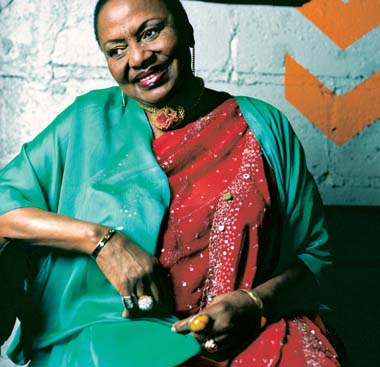 1. “Pata Pata” - Mama Africa
2. “The Click Song” - Mama Africa
3. “Kilimanjaro” - Mama Africa
4. “Jolinkomo” - Mama Africa
5. “Mbube” - Live At Bern's Salonger, Stockholm, Sweden
6. “My Angel (Malaika)" - An Evening With Belafonte/Makeba
This is a duet with Harry Belafonte.
7. “Hush” - Mama Africa
8. “West Wind” - Mama Africa
9. “Phata Phata” - Mama Africa
10. “Malaika” - Mama Africa
11. “Love Tastes Like Strawberries” - Reflections
12. “Don't Break My Heart” - Eyes On Tomorrow (out of print)
This is a duet with Dizzy Gillespie.
13. “Carnival” - Mama Africa
14. "Mas Que Nada" (Live) - Live From Paris & Conakry
15. “Xica Da Silva” - Reflections
16. “A Piece Of Ground” - Pata Pata
17. “Soweto Blues” - Welela
18. “Ngalala Phantsi” - Sangoma
19. “Kulo Nyaka” - Sangoma
20. “Emabhaceni” - Sangoma
21. “Mabhongo” - Sangoma
22. “Thulasizwe / I Shall Be Released” - Eyes On Tomorrow
This is a duet with Nina Simone.
23. “When I've Passed On” - Live At Bern's Salonger, Stockholm, Sweden
1. “Pata Pata” - Mama Africa
2. “The Click Song” - Mama Africa
3. “Kilimanjaro” - Mama Africa
4. “Jolinkomo” - Mama Africa
5. “Mbube” - Live At Bern's Salonger, Stockholm, Sweden
6. “My Angel (Malaika)" - An Evening With Belafonte/Makeba
This is a duet with Harry Belafonte.
7. “Hush” - Mama Africa
8. “West Wind” - Mama Africa
9. “Phata Phata” - Mama Africa
10. “Malaika” - Mama Africa
11. “Love Tastes Like Strawberries” - Reflections
12. “Don't Break My Heart” - Eyes On Tomorrow (out of print)
This is a duet with Dizzy Gillespie.
13. “Carnival” - Mama Africa
14. "Mas Que Nada" (Live) - Live From Paris & Conakry
15. “Xica Da Silva” - Reflections
16. “A Piece Of Ground” - Pata Pata
17. “Soweto Blues” - Welela
18. “Ngalala Phantsi” - Sangoma
19. “Kulo Nyaka” - Sangoma
20. “Emabhaceni” - Sangoma
21. “Mabhongo” - Sangoma
22. “Thulasizwe / I Shall Be Released” - Eyes On Tomorrow
This is a duet with Nina Simone.
23. “When I've Passed On” - Live At Bern's Salonger, Stockholm, Sweden
This entry was posted on Monday, March 23rd, 2009 at 7:00 am and is filed under Classic. You can follow any responses to this entry through the RSS 2.0 feed. You can leave a response, or trackback from your own site.
Leave a Reply
| top |